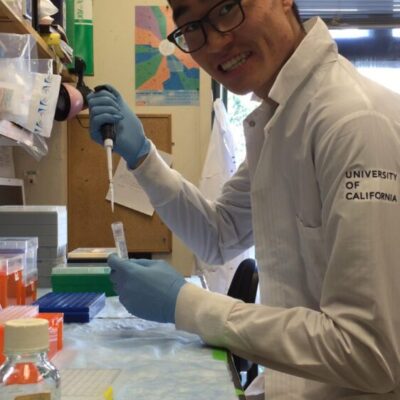Alexander Kim Rose Hills
Role of endothelial rae-1 in NKG2D dependent tumor immunosurveillance
Cancer refers to a group of currently incurable diseases characterized by the unchecked proliferation of abnormal cells in the body, resulting in the growth of tumors. Today, cancer remains the second leading cause of death in this country. Most current cancer therapies are highly toxic and often only partially effective, highlighting the need for a greater understanding of this disease in order to inform new therapies.
Immune cells, including natural killer (NK) cells, possess the innate ability to identify and destroy tumor cells via specific interactions between cell surface receptors and antigen in the tumor microenvironment, a process called immunosurveillance. However, some of these interactions between NK cell receptors, namely NKG2D, and specific ligands on non-tumor cells, can de-sensitize NK cells, allowing unchecked tumor growth. RAE-1 is one such ligand that appears to inhibit NK cells ability to eliminate tumor cells when it is expressed on non-tumor cells in the tumor environment. Currently, it is not known what induces RAE-1 expression. We hypothesize that tumor cells induce RAE-1 on endothelial cells, and in this project, I will attempt to establish an in vitro system to identify an inducer of RAE-1, which could provide novel therapeutic targets for treating cancer.
Message To Sponsor
Thank you to SURF and the Rose Hills Foundation for this incredible opportunity to pursue my own research project this summer. Undergraduate research has been one of the most enjoyable and formative experiences of my time at Cal, so I am very humbled by your generous gift, as it will provide me with invaluable skills and experiences on my path to becoming a physician scientist. Thank you for supporting the realization of my goals and dreams.